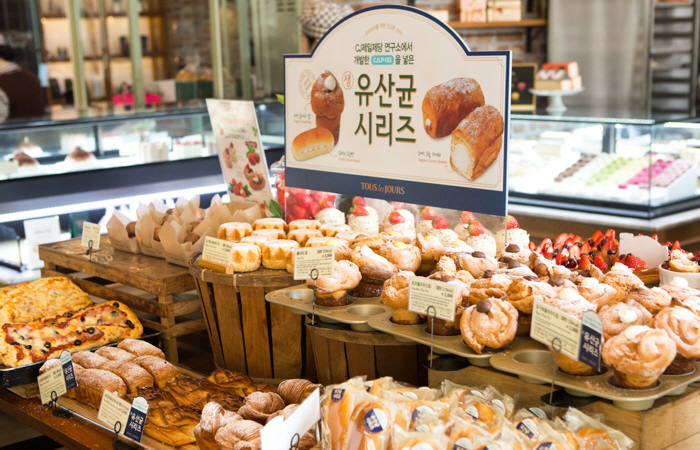An increasing number of Americans and Europeans are buying sweet-flavoured Korean bread for snacks, leading to the expansion of chains like Paris Baguette and Tous less Jours in foreign markets.
The change is the result of an evolving landscape in South Korea’s food culture, led by South Korean bakeries in foreign markets as well as the impact of the coronavirus pandemic.
South Korean bread and baked goods such as sweet red-bean bread or kimchi croquettes come in many varieties due to the diverse ingredients used as fillings. Since they are consumed primarily as snacks, most of them are sweet and soft.
South Korea’s leading bakeries are speeding up efforts to expand in foreign markets.
Paris Baguette, which currently operates 429 stores across six countries including Singapore, Vietnam and France, has stores in New York’s consumption hotspots including Times Square and Upper West Side.
Another bakery franchise Tous Les Jours runs some 280 stores across six countries including the US and has been profitable for the last three years despite the pandemic.
The bakery sells more than 300 items, which is two to three times more than its main competitors.

Unlike the US or Europe where Korean bread is growing in popularity, South Korea is seeing increasing consumption of European bread, primarily as an accompaniment to meals.
Ever since the coronavirus outbreak, South Koreans are replacing rice with bread to spend less time making meals at home.
Unlike Korean bread, European bread usually does not have fillings, and is consumed in Europe as part of meals instead of as a snack.
Tous Les Jours saw a 25- to 30-per-cent increase in European bread sales last year.
Convenience stores are also joining the trend as more consumers are buying European bread at their neighbourhood convenience store instead of going to a bakery. 7-Eleven’s European bread sales jumped by 146 per cent last year from the previous year.
Other convenience store franchises such as CU and GS25 have also launched independent bakeries to enter the market.
- H M Kang writes for Korea Bizwire.






